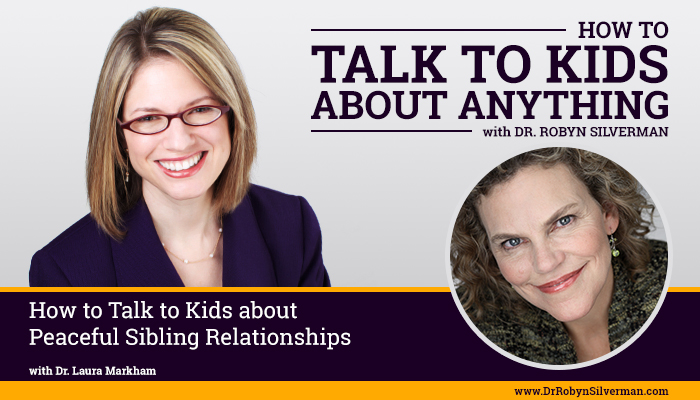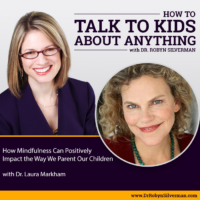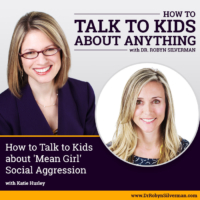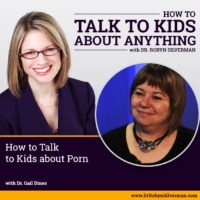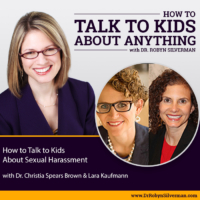Podcast: Play in new window | Download
Subscribe: Apple Podcasts | RSS | More
How to Talk to Kids about Solving Sibling Rivalry
This podcast provides tips and scripts for parents to help their kids cultivate better sibling relationships through understanding, empathy, listening and connecting. Sibling rivalry can be frustrating for the whole family. How do we get our children to manage conflict better with their siblings? How do we get them to value each other more? The answers are here with our wonderful guest, Dr. Laura Markham.
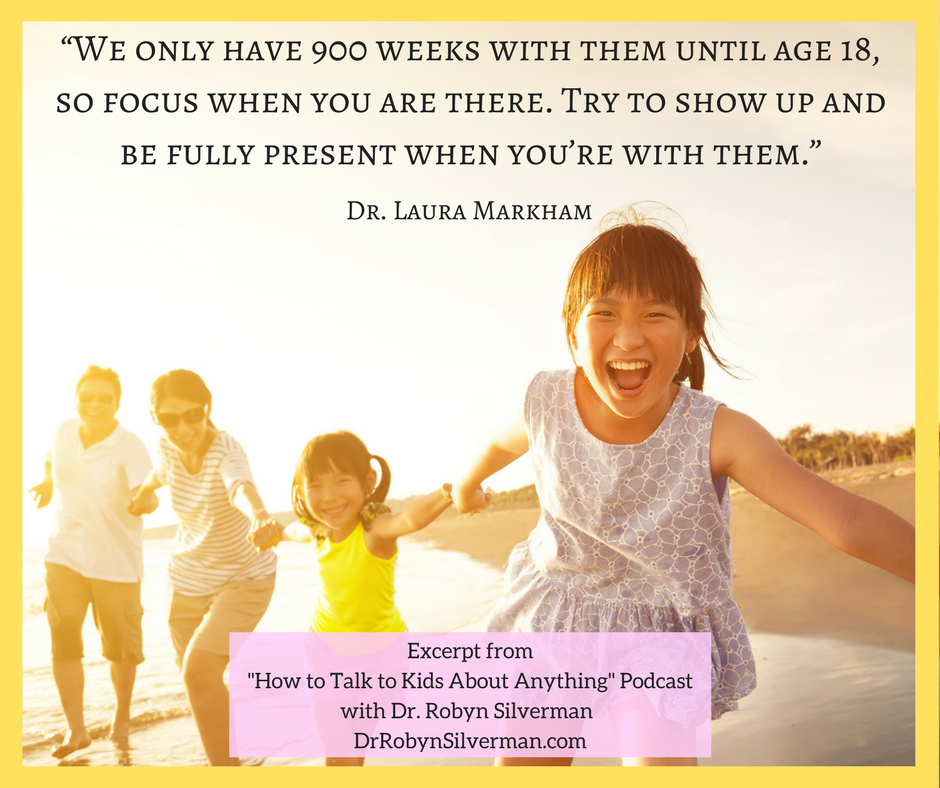 Special Guest: Dr. Laura Markham
Special Guest: Dr. Laura Markham
Best friends? Worst enemies, buddies, adversaries, confidants, competitors? There’s no relationship like it– siblings! One minute they’re getting along and the next minute they are fighting tooth and nail like lions and tigers! Some parents might even wonder under the most extreme duress, will there ever be a day when they just get along? Well the yes answer might be closer than you think because we have Dr. Laura Markham on the show today to help us address sibling rivalry and establish peaceful sibling relationships!
Dr. Laura Markham trained as a Clinical Psychologist, earning her PhD from Columbia University. She is the mother of two, now ages 21 and 25. Dr. Laura is the author of the book Peaceful Parent, Happy Kids: How to Stop Yelling and Start Connecting and Peaceful Parent, Happy Siblings: How To Stop the Fighting and Raise Friends for Life. You can find her online at http://www.ahaparenting.com
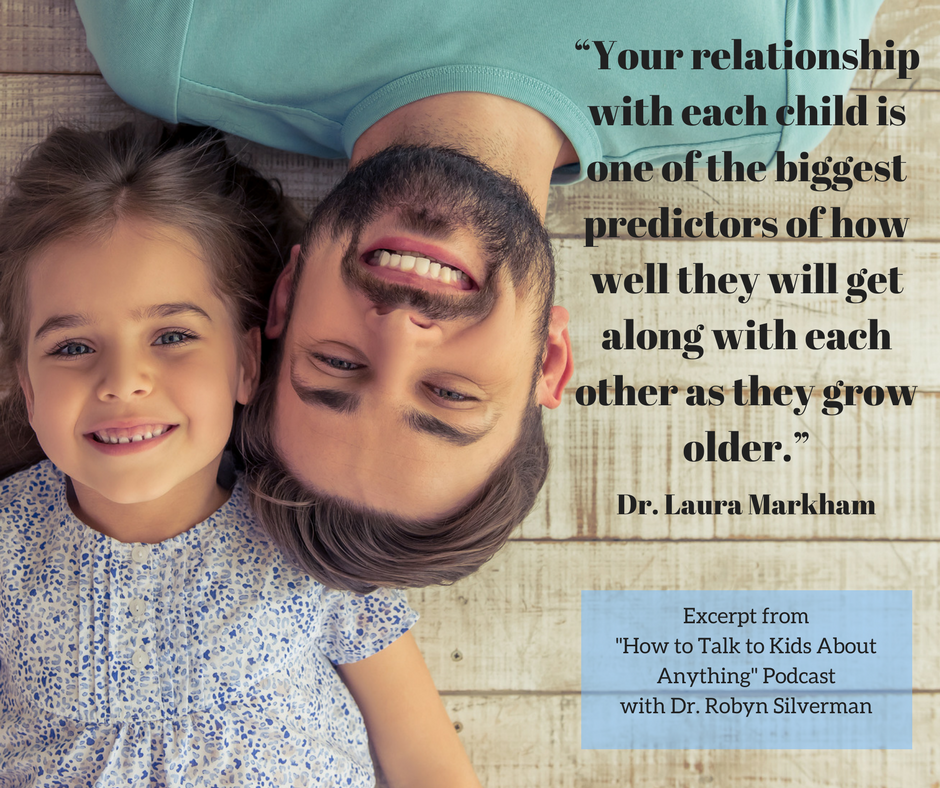 This podcast provides:
This podcast provides:
- Scripts: How to talk to your child when sibling jealousy is happening, how to talk to your child when conflict is occurring, how to reassure and connect with your child, how to talk to your child about the annoyance and the gift of a sibling.
- Tips: How to help kids navigate conflict when both siblings are present.
- What really is going on with siblings and why they fight so much.
- How to do family appreciations and how to draw attention to what we can be grateful for
- How to do perspective-taking with your children
Important Messages:
- Kids sometimes just need to express how they feel even though we might not like that they are feeling that way about
 their sibling!
their sibling! - When we don’t allow children to express their frustrated feelings, resentment can form.
- Kids have an immature prefrontal cortex- in charge of the executive functioning in the brain- and so it’s hard for them to do constructive conflict management.
- Teach your children skills to get along when they are young so they know them when they are older.
- A new sibling, while a gain for the family, can also feel like a loss to the older child.
- There’s a scarce resource here- parental time and attention. The older child is asked to give up some of that.
- You can’t control your child or spacing or personalities or gender but you can control how you relate to each child- how deep and sweet your relationship is with each child. When you connect, you give them a strong foundation.
- Make sure are children feel our presence- we have to show up.
- Build in time to connect.
- Hug your child- it has to be protective.
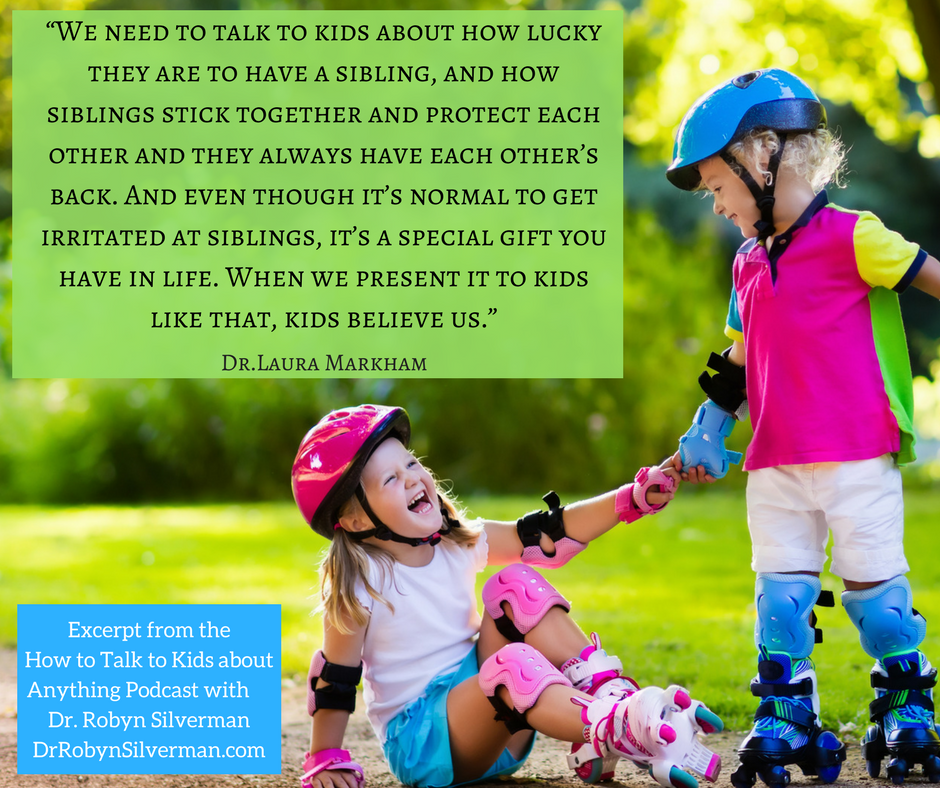 Watch for opportunities to give your children conflict resolution skills.
Watch for opportunities to give your children conflict resolution skills.- Our role is to make things calmer- not to make things worse.
- When we take sides, the child who was scolded feels less loved. The one who was protected feels that they won and feels that s/he needs to continue to undermine the other.
- Don’t blame- you often don’t really know everything that’s going on- and if we refrain from blaming, then the child is more open to correction.
- Get that one on one time with each child.
- Make sure you are touching both children when you are talking with them and working the conflict out. Restate what they say- each point of view. Validate, problem solve. Look at each child.
- Establish the rule in your family- that in your family you are kind and you don’t call names.
- Present that having a sibling is a gift. It’s valuable!
- Create a family value that having a sibling is a gift- the kids absorb this!
- Don’t lecture—empathize first before providing any other information!
Notable Quotables:
- “Our instinct is to fight against the way that they feel but actually, if we can accept it and them with it, everything can
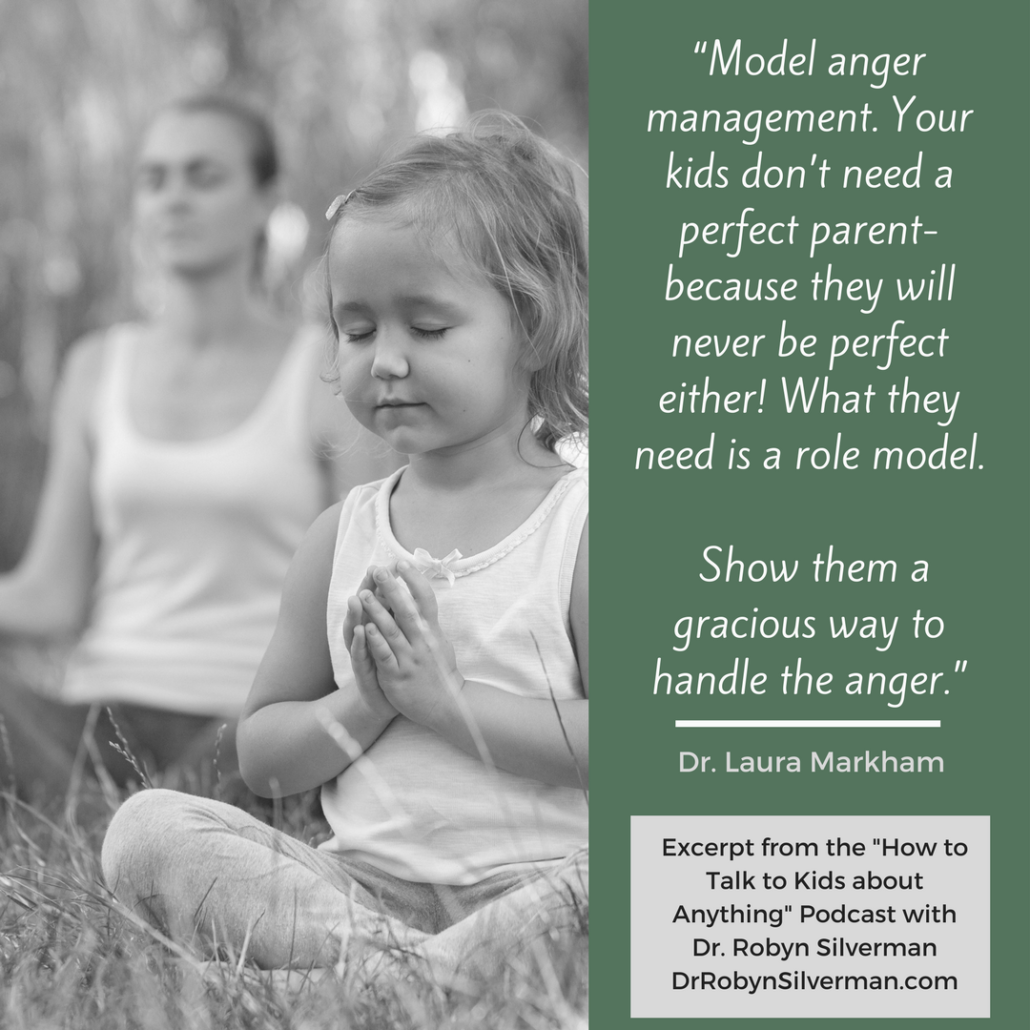 start to shift.”
start to shift.” - “There’s a scarce resource here; parental time, attention and love. But there’s a cure. Every child needs to hear from us, no matter how much your little sibling gets, there’s always more than enough for you. I could never love anyone more than I love you.”
- “Your relationship with each child is one of the biggest predictors of how well they will get along with each other as they grow older.”
- “You can’t control your kids. You can’t necessarily control the spacing. You certainly can’t control their personalities or whether they are boys or girls. So you don’t necessarily know how they’ll get along. But you can control how you relate to each child. How deep and sweet each relationship is- how much you listen to them and connect with them and when you do that and safeguard each relationship, then they have a foundation to feel that their needs are met and to get along better with each other.”
- “We only have 900 weeks with them until age 18, so focus when you are there. Try to show up and be fully present when you’re with them.”
- “Don’t take sides.”
- “Instead of being the avenging angel, what you really want, is coach your child to stand up for him or herself.”
- “The first thing you want to do is stop, drop and breathe.”
- “Problem solving is the last step. Before that, the skill is to help them say to each other what they need to say.”
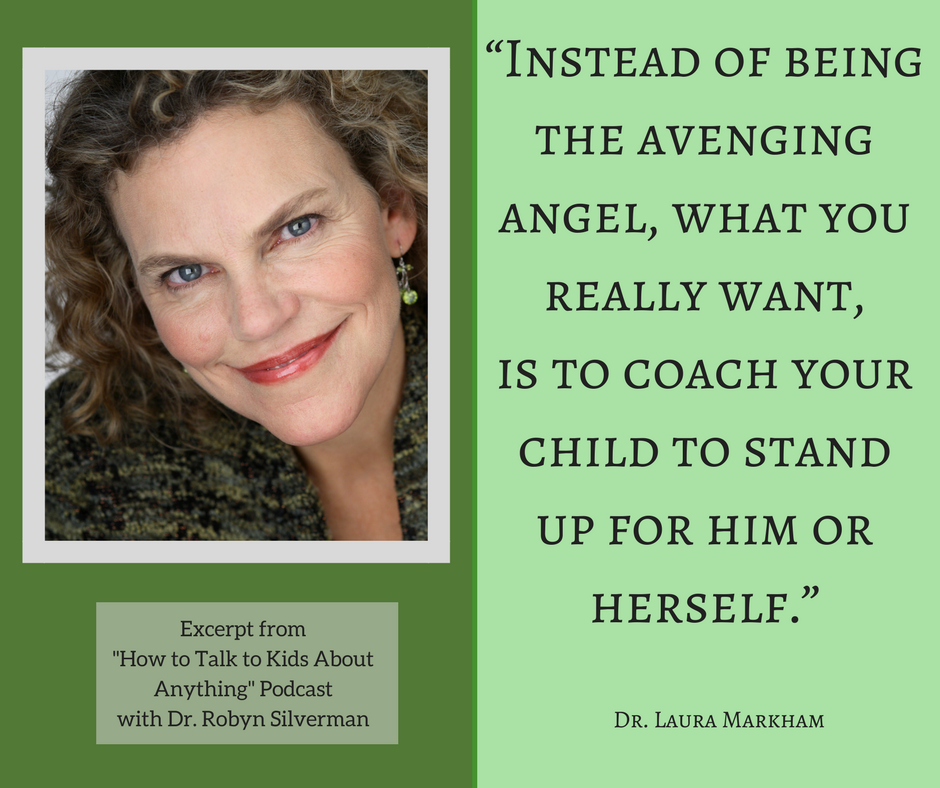
- “The more positive interactions kids have when they are children, the closer they will be to their sibling for the rest of their lives.”
- “When your children are playing happily, do whatever you can to protect that space for them.”
- “When we talk to kids about how lucky they are to have a sibling, and how sibling stick together and protect each other and they always have each other’s back. And even though it’s normal to get irritated at siblings, it’s a special gift you have in life. When we present it to kids like that, kids believe us.”
- “Feelings are just a message to us. When you actually allow yourself to feel an emotion, it begins to dissipate and heal.”
- “Every child deserves a start in life when they feel like their parents are on their side and they matter.”
- “All siblings fight. The question is, can they fight in a way that brings them closer over time?”

